Republic v. Adu-Boahene: EOCO withholds two witness statements; Judge orders A-G to produce them by close of day today
 Justice Srem and Raymond Archer
Justice Srem and Raymond Archer
The High Court (General Jurisdiction 10) has directed the Attorney-General’s Office to retrieve and submit two "missing" witness statements from the Economic and Organised Crime Office (EOCO) by the close of day tomorrow, November 13, 2025. This follows revelations in court that the statements, believed to be crucial to the ongoing case of The Republic v. Kwabena Adu-Boahene and two others, were not included in the EOCO report before the court.
The directive was issued by the presiding judge, Justice Eugene Nyadu Nyantei, on Wednesday, November 12, 2025, after lead defence counsel, Hon. Samuel Atta Akyea, drew the court’s attention to inconsistencies in the testimony of the prosecution witness, Madam Edith Ruby Opokua Adumuah, Head of Finance at the National Signals Bureau (NSB).
During proceedings, Mr. Atta Akyea raised concerns that the witness had earlier admitted to making three statements at EOCO, but two of them appeared to be missing from the case record. He therefore prayed the court to compel the prosecution to produce the omitted statements.
At both the bench and the bar, Mr. Atta Akyea insisted that “some three statements” made by the witness had been withheld from the court record, arguing that the missing documents might contain material information relevant to the defence’s case.
The presiding judge, after hearing arguments from both sides, questioned the witness directly. “If you are given the opportunity, will you be able to remember the number of houses you told EOCO you owned?” he asked. Mrs. Adumuah replied, “Yes.”
The judge also observed that the witness appeared confused by certain questions during cross-examination and therefore advised her to answer “yes” or “no” before giving any explanations.
He emphasised that it was his duty to protect witnesses and ensure that they were not misled or pressured into unclear testimony.
Commenting on earlier exchanges between the bench and counsel, the judge stated that he had not altered the witness’s evidence as suggested by Mr. Atta Akyea, but had only sought to clarify her misunderstanding of the question concerning her three statements at EOCO.
The court further noted that it is not every civil servant who is aware of the commencement of a criminal case, after the witness indicated she did not know when the accused persons were first arraigned.
The judge subsequently invited both counsels to the bench for a brief consultation before directing the defence counsel to proceed with his final question.
In his ruling, the presiding judge ordered that the two missing witness statements be retrieved from EOCO and delivered to the court by close of day tomorrow. He also directed that any audio recordings in EOCO’s custody relating to the witness’s interrogation, if available, should be procured by the Attorney-General and filed as part of further disclosures.
When Mr. Atta Akyea urged the court to allow the defence to fully probe the matter, describing the judge as “the referee” who must ensure that justice is not restrained, the judge assured him that he shared the same objective, stating, “That is my interest; leave that to me.”
Before adjourning the case, the presiding judge indicated that he would order the witness to produce certain letters referenced in her testimony on a later date.
The witness, Madam Adumuah, had earlier told the court that she often received instructions from her superior officers regarding financial matters at the NSB, sometimes through emails on which she was not copied directly. “As I mentioned earlier, my boss is the one who sends it to me; sometimes I am not copied in the email, but I still take instructions from my boss on what to do,” she said this while being cross-examined.
Lawyer Atta Akyea argued that the witness had already indicated she was informed by the Economic and Organised Crime Office (EOCO) that her engagement with the institution was being recorded.
Atta Akyea further explained that according to the Practice Direction on Disclosures and Case Management in Criminal Proceedings, 2018 (which lists audio, video and electronic recordings among disclosure materials)…”. “So, why the opposition,” he questioned, “unless the Attorney-General intends to conceal exculpatory evidence? I do not see how this lawful request forms the basis for a preliminary objection.”
According to him, denying access to the audio evidence would amount to the concealment of material that is clearly admissible under the law.
“On this showing,” Lawyer Atta Akyea pleaded, “I crave your indulgence to overrule the opposition to further disclosures so that, in the ultimate interest of justice, My Lord will know what was said at EOCO and what is being said here in Court.”
However, the Deputy Attorney-General, Dr. Justice Srem-Sai, maintained that there exists no such audio recording.
The case has been adjourned to December 9, 10, and 11, 2025, for the continuation of cross-examination.
Cross-Examination
During the cross-examination, Lawyer also Atta Akyea questioned the witness on her encounter with EOCO and her role in the ongoing case.
Atta Akyea's question: “In your testimony so far, you did not inform the court that when you voluntarily showed up at EOCO, you were arrested and later granted bail.”
Prosecution Witness answer: “No, I disagree.”
Question: “I further put it to you that you were a suspect in the case.”
Answer: “No.”
Question: “Indeed, EOCO informed you and your lawyer that you were being investigated for some crimes associated with your office.”
Answer: “No, I disagree.”
Question: “You told this Honourable Court that you gave three statements and one caution statement.”
Answer: “Yes, I gave three statements but I do not remember the caution statement.”
Question: “So was your house searched at all?”
Answer: “Yes.”
Question: “More than one of your houses was searched?”
Answer: “No, I was only asked to identify if I had other houses.”
When Mr. Atta Akyea asked which of her other houses was not searched, the presiding judge restrained the witness from answering.
Question: “Do you have other houses apart from the one that was searched?”
Answer: “Yes.”
At that point, the prosecution objected to further questioning on the issue, arguing that it was irrelevant to the case.
Mr. Atta Akyea rebutted that the line of questioning was relevant because it followed the witness’s own statement made to EOCO.
He maintained that disallowing the question could distort the proceedings and subvert the rules of cross-examination. “If the Deputy Attorney General believes their witness should not be cross-examined, then she should not have been fielded in the first place,” he argued, urging the court to overrule the objection.
Question: “Per the documents before you, you were not charged by EOCO?”
Answer: “Yes, I believe investigations are meant to find out the truth, so if EOCO says I was not charged, I have nothing to say about it.”
Question: “The three statements you disclosed to EOCO exclude the one you signed out of EOCO on May 9, 2025?”
Answer: “Yes.”
At this point, Mr. Atta Akyea prayed the court to order that the three other statements be produced before the judge to enable him to continue his cross-examination. The presiding judge, however, directed that the witness’s previous answer be corrected, stating that she had misunderstood the question.
Question: “When you appeared before EOCO, were you told that the interrogation was being recorded?”
Answer: “Yes.”
Question: “You are to testify to the truth, and that truth may not necessarily be limited to your office?”
Answer: “I have a letter from my office directing me to come to court to testify.”
Question: “Is it not the case that only a suspect is admitted to bail?”
Answer: “I don’t know.”
Question: “I put it to you that EOCO admitted you to bail because you were a suspect.”
Answer: “I don’t know.”
Mr. Atta Akyea also revisited issues of invoices presented in the witness’s earlier testimony.
Question: “At the last sitting, you made a comparison between two invoices with the same number, NSC006, generated by ICS. Holdings Ltd. Can you refresh your memory on this matter?”
Answer: “Yes.”
Question: “The items in both invoices are different?”
Answer: “They are two different items with the same invoice number.”
Question: “With one of the invoices, who was it addressed to? And what about the other?”
Answer: “One was addressed to the National Security Council, Accra-Ghana, and the other to BNC.”
After several exchanges and objections, the presiding judge, Justice Eugene Nyadu Nyantei, adjourned the proceedings to December 9, 10, and 11, 2025, for the continuation of cross-examination.
Source: Classfmonline.com/Cecil Mensah
Trending News
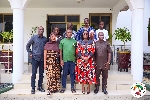
Ghana Medical Trust Fund covers life-saving brain surgery for Wa Technical Institute tutor
20:00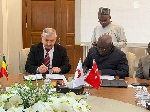
Minister signs MoU with GIDA VE TARIM University to secure scholarships for Ghanaian agriculture students in Turkey
02:03
Ashanti Tomato Queenmother warns of fresh tomato price surge, shortage after Burkina Faso trade disruptions
13:08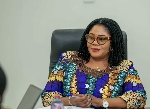
Gender Ministry offers psychological support to victims of non-consensual recordings
17:32
A/R: Mamponteng traders protest over abandoned Jubilee Market
09:05
NPP announces timetable for 2026 re-organisation exercise
14:42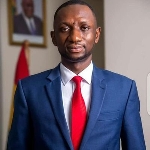
Ofosu Nkansah requests Callistus and others to write to NIB to investigate NDC's stalwarts' claim of sale of slots
19:09
Family demands justice as baby's sick after Mamprobi Polyclinic theft incident
19:46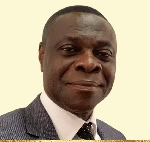
Social Studies textbook was developed 15 years ago in line with the national curriculum approved at the time- Aki-Ola Publications to MP
01:55
CID engages Nigerian transport operators to strengthen fight against human trafficking
11:55



